| It has been an incredible first year in office. I’ve learned a lot about the inner workings of our city while tackling the many interconnected issues and challenging our government to expand our imagination of justice. The victories we’ve achieved together have been sweet and numerous, but there is still so much to do! Click on each section below to read about what we accomplished in 2018 and where I’m planning to lead in the coming year. It has been a delight to serve as your Cambridge City Councillor for the past year, and I look forward to a spirited re-election campaign in 2019. As always, don’t hesitate to reach out to discuss whatever is on your mind- no time is too inconvenient, and no issue is too small. |
Sections
Housing & Displacement
My work on housing has been centered on helping tenants find stability and remain in Cambridge amidst an out of control real estate market and rapidly rising rents. My office has helped several individuals and families facing eviction or burdensome rent increases. Often we were the last line of defense against displacement or even homelessness, and I’m glad we were able to help find stable housing in many cases. I really appreciate the dedication of our partners in this work: the Cambridge Housing Authority, the Multi-Service Center, Greater Boston Legal Services, city staff, and my colleagues on the Council. Though I am not a member of the Housing Committee this term, I attended every meeting and found ways to keep tenant protections in the conversation as much as possible.
Tenant Right of First Refusal
Early in the year, I was one of just three councillors to vote in support of having a conversation about the concept of Right of First Refusal, which would give tenants faced with eviction an important opportunity to purchase their building, perhaps with the help of one of the city’s affordable housing nonprofits. This is an important conversation that Somerville is already having in support of Rep Denise Provost’s enabling legislation, and I remain disappointed that the effort was squashed before the conversation even began.
Relocation Assistance for Tenants
Later in the year, I submitted an order asking for a legal opinion on the renter relocation assistance ordinance recently enacted in Portland, Oregon. Portland’s ordinance, implemented despite a statewide ban on rent control, gives tenants a sum of money when they are faced with moving due to a no-fault eviction or burdensome rent increase. It also significantly increases the amount of notice landlords must give in these situations. The order was referred to a new commission on tenant protections, organized by Mayor McGovern and chaired by Councillor Siddiqui, which will begin meeting this month, January 2019. I am optimistic and hopeful that tenants will be well represented on the commission and that bold ideas such as relocation assistance and even right of first refusal will be seriously considered as the meetings begin.
Comprehensive State Level Reform

During December’s informal sessions, Statehouse Leadership tried to pass Governor Baker’s “Housing Choices” bill without discussion, opportunity for amendments, or even a vote. I support Rep Mike Connolly’s decision to oppose the bill as written to give the legislature an opportunity for transparent conversation about more comprehensive reform, including tenant protections, during the formal session. An attempt was made to put the Cambridge City Council on record urging Mike to reconsider, but when more than 100 residents (including many tenants) spoke out in opposition, the resolution ultimately failed 4-4. The vote was a huge symbolic victory for those who believe, as Mike and I do, that we must pass a comprehensive reform package including tenant protections and new opportunities for revenue generation this year during the formal session. Read more about Mike’s position and plan for moving forward on his blog.
Climate & Environment
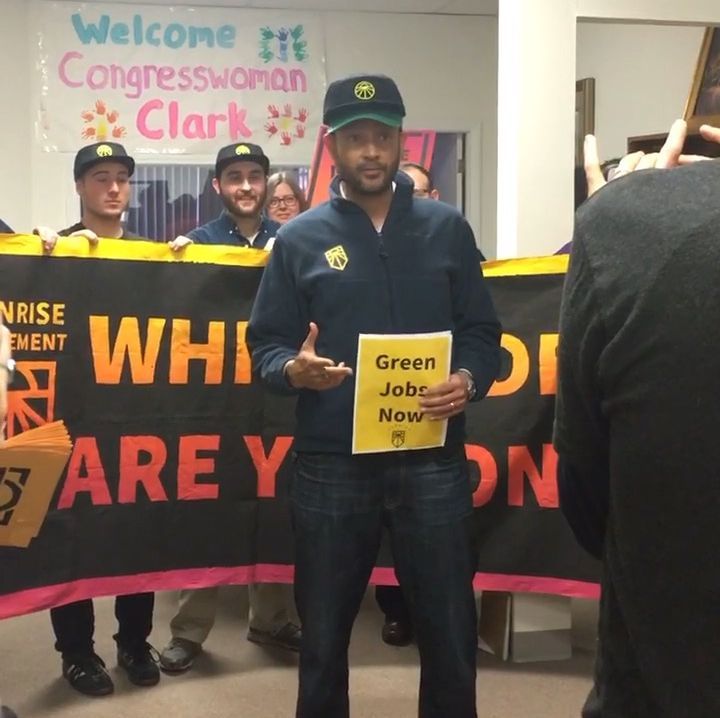
As co-chairs of the Health and Environment Committee, Vice Mayor Devereux and I have worked to make sure climate change and environmental issues are a top priority of the council. The recent IPCC report on staying below a 1.5° C temperature increase has given a new sense of urgency to the issue, and it has never been more important for municipalities to take the lead. This year however, it became clear our choices at the local level continue to prioritize convenience, development, and profits over people, tree canopy, and even our own safety. There was, however, reason for hope: thousands of young people stood up and demanded a Green New Deal to rapidly shift our electric grid to 100% renewable energy while creating jobs for those willing to help make it happen. I was proud to stand with activists from Sunrise Movement at Rep Katherine Clark’s district office in Cambridge as we asked for her support. Not long after, she signed on! I also stood with Sunrise activists at the doors of Harvard’s “Bipartisan Congressional Orientation” as we called for newly-elected reps to show their support. Our calls were so loud that freshman Reps Alexandria Ocasio-Cortez (NY), Rashida Tlaib (MI), and several others came down to speak! This surge of energy and enthusiasm in the streets, combined with our incredible class of Freshman legislators, including our own Ayanna Pressley, gives me hope for the future.
Public EV Charging Stations
We built on the Vice Mayor’s work from the previous term and asked about increasing the number of publicly accessible electric vehicle (EV) charging stations around the city. Lack of charging options remains a barrier to widespread EV adoption in dense urban centers, even as prices have dropped to largely affordable levels. The resulting report from the City Manager reminded everyone of the goal: to increase conversion from combustion engine to electric without increasing overall car ownership in the city. In order for Cambridge to hit our proportion of the state’s overall goal, we would need to have 4,000 EVs on the road by 2025. The City Manager has appropriated funding in the FY19 operating budget to develop an “EV Strategy” which will better determine how we achieve that goal. Additionally, several new public EV charging stations will be installed in Spring 2019:
- 99 Sherman Street (Danehy Park)
- 73 Sherman Street (St Peters Field/Salt Shed)
- 177 Garden Street (St Peters Field / Montessori School)
- 375 Green Street (Lot 8)
- 420 Green Street (Lot 9)
Protecting our Tree Canopy
In April 2018, data was collected on our tree canopy via a LiDAR study, and I immediately asked that (1) the results of that study be delivered before the end of the year and (2) future studies be carried out more frequently, especially until the canopy stabilizes. We were told that the frequency will change to once every 2-3 years from once every 4-5 years. Not long after, we got the preliminary result of an 18% decline in our city-wide tree canopy since 2009. While we wait for soon-to-come recommendations from the urban forest master plan task force, I proposed a series of stopgap measures: requiring a permit to cut down a healthy, mature tree anywhere in the city, requiring additional steps for removal of healthy street or park trees in non-emergency situations, and funding for new street trees in the most impacted neighborhoods, which tend to also be the lowest income neighborhoods. To those orders, the City Manager responded that the Council would be formally notified anytime a healthy tree on city property has to be removed from now on, and he also allocated $100,000 for planting and care of additional trees, with a particular focus in East Cambridge and The Port, both areas that are particularly vulnerable to the urban heat island effect. Click here to see the list of streets that will soon or have already received new plantings. If there is one on your street, please help take care of it! Read more about the data and our tree canopy loss on my blog.
Net Zero Progress
In May, we held a committee hearing to receive a progress report on the Net Zero Action Plan which I helped develop and advocated for extensively in the years prior to taking office, starting in 2013. The plan is fully staffed and being implemented since it was adopted by the council in 2015. It is important to make sure the plan stays on track, and I am expecting an update to the Green Building Requirements Ordinance soon, that will require more insulation and other efficiency measures as part of construction. Meanwhile, the city has already begun a commendable effort to achieve net zero emissions in new municipal building construction in advance of the 2020 deadline. The buildings replacing the former King Open School and associated buildings in Wellington Harrington will be completely fossil fuel free! This building complex, to be completed in 2019, will host the King Open School and Extended Day program, the Cambridge Street Upper School, the Valente Branch Library and the Gold Star Mothers Pool, as before. In addition, the entire Cambridge Public School Department’s administrative offices will move into the new buildings as well. The entire complex will be heated and cooled via geothermal heat pumps and solar panels, with a bio-diesel backup generator in case of a power outage. Some electricity will still come from the grid, but the city is on track to zero out those emissions entirely over the next several years. The MLK school on Putnam Ave, completed in 2015, was certified LEED Platinum in 2018, and the YWCA’s women’s shelter at 859 Mass Ave was constructed net zero by the city.
Getting to Zero Waste

In October, I chaired a committee hearing to discuss the three prongs of the city’s zero waste effort: recycling, curbside organics, and the recent bans on plastic bag/polystyrene. The city’s Curbside Organics program has gotten off to a great start: 800 tons of food scraps were diverted from landfills in the first 6 months of the program, an 8% overall reduction in what we are sending to our landfills. While there are legitimate concerns about how those scraps are being composted, currently there are no facilities nearby that can accept such a large amount of food waste. Diverting our food waste away from landfills and incinerators is a huge step in the right direction, and hopefully more ecologically sound composting options will become available that can process such large volumes. When it comes to recycling, China’s efforts to reduce contamination has raised costs by $35/ton for the city and upended the industry. Our contamination rate for recycling is around 10%, which is nearly twice as good as Boston! If we can get down to 7%, costs will decrease significantly, so remember: absolutely no plastic bags in recycling! But the reality is, improving recycling purity is an impossible chore and the real focus needs to be on banning all single use plastics. I plan on introducing such a ban this year, with necessary carve outs for items we simply cannot eliminate at this time, including plastic straws for use by those with medical needs.
Gas Leaks

In November, I chaired a hearing on fracked gas infrastructure and gas leaks. We heard from representatives of HEET, Mothers out Front, Green Cambridge, USW 12003, and Eversource. I called this hearing in the aftermath of the tragic Merrimack Valley explosions because the state’s
network of contractors, utilities, and overseers is so interconnected that the same contractor on the job the day of those explosions routinely does work in Cambridge, and was even responsible for the negligent destruction of a magnificent oak tree on Gore Street last summer. The city was compensated at over $67,000 for the oak tree, setting an important marker on the monetary value of trees in our city. Following the hearing, I submitted a resolution calling on Governor Baker to adequately fund the inspectional division of the DPU after it was revealed that there were only 3 qualified inspectors on staff in the weeks leading up to September’s Merrimack Valley explosions, which is shameful. There are fundamental problems at every level of service, and our aging infrastructure isn’t getting replaced fast enough! The only real answer is to move towards renewable energy, but in the meantime we need to make sure there are no more blow-ups! You can read more about this issue and the hearing in my December Update.
Climate Adaptation & the Climate Safety Petition
Last Spring, residents from across the city filed a zoning petition which called for stronger flood protections and additional green space requirements in new developments. The city’s own research indicates that areas of the city will be highly susceptible to climate change-induced flooding and the urban heat island effect in the coming decades, especially in East Cambridge, Alewife and the Port. Imagine your elderly neighbor getting trapped in her home during a major flooding event, or a young child suffering from heat stroke during a heat wave! The petition contained many common sense and necessary measures to protect our loved ones against such dangers, including elevating mechanicals, raising buildings to be above projected flood levels where appropriate, and an innovative “green factor” that would mandate trees and green space to soak up water and help cool the air, something that is already being implemented in Seattle. These ideas are critical to protecting our safety as we continue to develop dense residential housing in the Alewife Floodplain and throughout our city. Unfortunately, the Council voted this petition down without seriously exploring or discussing its contents, over concerns that the new requirements would adversely impact the development of additional housing. It is a false dichotomy to position climate protections as in opposition to housing development, especially when we consider that it is precisely those residents with the fewest resources and fewest options that are hit the hardest by the calamities of climate change. This outcome was particularly disappointing because the negative vote may end up making it more difficult to implement some of the necessary concepts, many of which had broad support. At the time, I wrote in the Cambridge Day that the Council had made an “egregious error” voting it down in that way. Fortunately, Mayor McGovern has convened a task force, co-chaired by one of the original petitioners, to develop concrete zoning proposals in 2019 to help protect us from the dangers of climate change. I intend to work closely with the task force to implement these important climate protection measures in the council as soon as possible!
Sustainable Transit
Lowering our Speed Limits
Based on the past work of Councillor Carlone and his former aide, current State Representative Mike Connolly, the state recently granted municipalities the authority to lower the regular speed limit from 30 to 25 MPH, and to 20 MPH in certain specially designated “safety zones”. Cambridge promptly lowered speed limits to 25 MPH citywide, and to 20 MPH in the five major squares (Kendall, Central, Inman, Harvard, and Porter) which were all designated as safety zones. The law gives municipalities latitude to designate safety zones much more broadly, however, and I put forward a policy order with Vice Mayor Devereux calling on the City Manager to do this more quickly and cover as much of the city as possible, especially areas adjacent to “parks, schools, youth centers, small residential streets, senior centers, senior housing, public housing, or anywhere else in close proximity to land-uses serving vulnerable populations”. A few months later, Vice Mayor Devereux chaired a committee hearing to further discuss the topic. Councillors were unified in their support for implementing more safety zones as quickly as possible, and city staff have begun to evaluate the impacts of the initial safety zones in preparation for creating additional ones. I will continue to join my colleagues in insisting on more safety zones implemented as fast as possible, so that everyone will be safer as they travel around our city.
Autonomous Vehicle (AV) Safety
Shortly after the deadly Uber AV crash in Arizona, I wrote a policy order giving the City Manager recommendations on best practices for AV testing in our city. Governor Baker plans to move ahead with a program that allows companies to test AV in cities and towns across Massachusetts, and it is important that we demand that this testing is only done with safe practices in place. The policy order calls for having two human drivers inside the vehicle at all times, ensuring vehicles comply with all posted speed limits including the recently enacted 20 MPH safety zones in our squares, extensive data sharing with the city, and written documentation of the safety practices put into place by the companies before they begin testing in Cambridge. The City Manager and his staff are actively negotiating with the state and interested companies based on these policy guidelines. In 2019, I will continue to advocate for these essential safety measures being in place before any autonomous vehicle testing is allowed on our streets.
Protected Bike Lanes
I am committed to implementing a network of protected bike lanes (PBLs) in Cambridge so that people of all ages feel more comfortable getting out of the car and onto their bike. I have been insisting on a more comprehensive implementation plan, and finally in November 2018, the City Manager announced an appropriation of $200,000 for that purpose. In the meantime, here are the specific streets and squares I have prioritized in my first year:
Longfellow Bridge: the bridge was under reconstruction for many years, and I successfully asked the council to go on record in support of the effort led by Reps Connolly and Livingstone, as well as many activists, to install a PBL as part of the new layout. Amazingly, the state listened and included a wider lane with flexposts! I hope at some point they will make the protected bike lane even wider to better accommodate cyclists of varying abilities.

Porter Square: In support of and based on requests from safety advocates, with the support of my colleagues, councillors Carlone and Devereux, I called on the city to install PBLs in Porter square as part of upcoming intersection improvements, which ultimately led to a reconsideration of the design and the installation of a protected lane for turning from Somerville Ave onto Mass Ave. While there is still much to be done in Porter, this represents a significant improvement to one of the most dangerous turns in the square.
River Street: I put forward a policy order asking the City Manager to include a PBL along the entire length of River Street as part of the upcoming redesign. Such a lane would complement the award winning southbound cycle track on Western Avenue as the only protected route northbound from Memorial Drive to Central Square to create a continuous protected loop between the square and the river. Speeding is a particular problem on River Street because of its proximity to the highway, and current conditions are treacherous for cyclists and pedestrians seeking to access numerous amenities including grocery stores, pharmacies, and a park. I am grateful for the prompt response we received from the City Manager that noted “separated bike facilities as identified in the bicycle plan…are critical to the success of the project” and highlighted the diverse 15-member Working Group that will begin meeting this month to figure out the final design.
Inman Square: The effort to make Inman Square safer began before I joined the council, and I am glad we finally moved this project forward last year. Though the plan isn’t perfect and contains significant tradeoffs, I pushed as hard as I could to get the best outcome possible. This included: many meetings with individual stakeholders and city staff including the City Manager, an insistence on additional community meetings, and chairing an additional committee hearing to ensure the project was thoroughly vetted and community voices were heard. Though I am sad to lose the 4 beautiful honey locust trees in Velucci Plaza, ultimately the final plan will be safer for all modes of travel. Through my direct efforts the city will move some of the smaller trees and plant even more additional trees than originally proposed, in order to replace the lost canopy as quickly as possible.
Memorial Drive (Paul Dudley White Path): Memorial Drive is a major commuting thoroughfare for cyclists, who have to share a narrow, deteriorating path along the highway with pedestrians, strollers, and joggers. Last Spring, I began meeting with stakeholders and officials to discuss how we can improve the situation. Because the land is state owned and managed by DCR, I put forward a policy order, passed by the council, that asked the City Manager to convene a meeting with DCR and prioritize this work. Fortunately, DCR announced significant funding earmarked for improvements along this stretch over the next few years. I look forward to continuing this conversation in 2019 to ensure improvements are made as soon as possible.
South Mass Ave: A major accomplishment of 2018 was the installation of a PBL along Mass Ave from Memorial Drive to Sidney Street in both directions, along with dedicated bus lanes as well. Kudos to our city staff for this major rethinking of how road space can be re-allocated on one of our busiest and most dangerous thoroughfares. Looking ahead, it will be important to fill in the gaps along Mass Ave to create continuous protection from the Arlington line to the Charles River.
Social Justice
Legal Cannabis Implementation & Equity

Voters overwhelmingly approved Question 4 in 2016, which legalized the growth, sale and possession of cannabis across the Commonwealth, and over the past year the council has had an important opportunity to ensure that equity and justice are prioritized as this new industry enters Cambridge. While it may feel like this process took too long, it was important to carefully minimize the risk that the industry could become dominated by big money applicants, leaving smaller, less generously funded equity applicants sidelined and unable to participate in the market. Councillor Siddiqui and I worked together from very early on to put forward policies that would guide the industry to develop as equitably as possible and to create opportunities for people who have been disproportionately impacted by prohibition. In the long term, we will benefit from the careful consideration of how to balance our equity goals with a timely introduction of adult-use cannabis businesses in our city. Read more in a detailed post on my blog, or review the final zoning language which will take effect on April 20, 2019, along with a separate ordinance specifically focused around the equity component.
Digital Equity
As a software engineer by trade, a top priority of mine has been to advance the cause of digital equity, a conversation that had been stuck in stalemate for quite some time following the recommendations issued by the Broadband Task Force in 2016. I began by meeting with residents for whom a lack of consistent broadband access is a difficult reality. One resident, an elderly woman living in public housing, reported having to conduct personal online video conversations with her family from the common room of her building, because that was the only place where she could access the internet. In another case, two siblings I spoke with recently graduated from CRLS without consistent internet access at home, relying on a patchwork system of friends, family, after school programs, and coffee shops to do their homework. When asked directly whether they thought they would have done better in school with consistent broadband at home, they unequivocally said yes.
While Municipal Broadband remains an important goal for me, the City Manager has made it clear he does not want to move forward in that direction. So my focus this year has been to work with the administration on other policies to more immediately help those who are most severely impacted by a lack of access.
The policy order I put forward asked for a plan which included four things:
- A clear quantitative and qualitative understanding of the digital divide in Cambridge
- A plan to ensure affordable broadband access in public housing by 2025
- Expanding the city’s existing fiber optics network, conduits, and right-of-ways to improve broadband access for residents and the public
- A review of the dig-once policy to maximize the potential for future expansion of the fiber optic network
In response, the City Manager requested a $150,000 appropriation, which we approved, to conduct a study of the digital divide. He also announced the formation of a new “Digital Equity Advisory Board” that will meet for the next year to discuss goals and strategies. As a global center of technological innovation, however, we have a responsibility to do more than just study the problem and have theoretical discussions. Furthermore, this problem is going to take much longer than 12 months to solve. I am still expecting a formal response to items 2-4 of my policy order, and I will continue to work with our strong community advocates and others to insist that more direct action is taken in the coming year and beyond towards the goal of providing high speed internet access to everyone in Cambridge.
Indigenous Peoples’ Day
My good friend and former City Councillor, Nadeem Mazen, began this important work back in 2016 when he led the Council in voting to change the name of Columbus Day to Indigenous Peoples’ Day. I’m honored to continue this effort, and I began working with Indigenous advocates to discuss how we can make Indigenous Peoples’ Day a robust tradition and celebration beginning in 2019. As the Mashpee Wampanoag Tribe continues to resist the Trump Administration’s attempt to appropriate their land, it is not enough to simply change the name of a holiday- we must lift up Indigenous voices and ensure their representation. I look forward to holding another committee hearing in early 2019 to discuss possible funding sources for this important holiday so we can make sure it becomes a permanent Cambridge institution.
Supporting our Trans Community
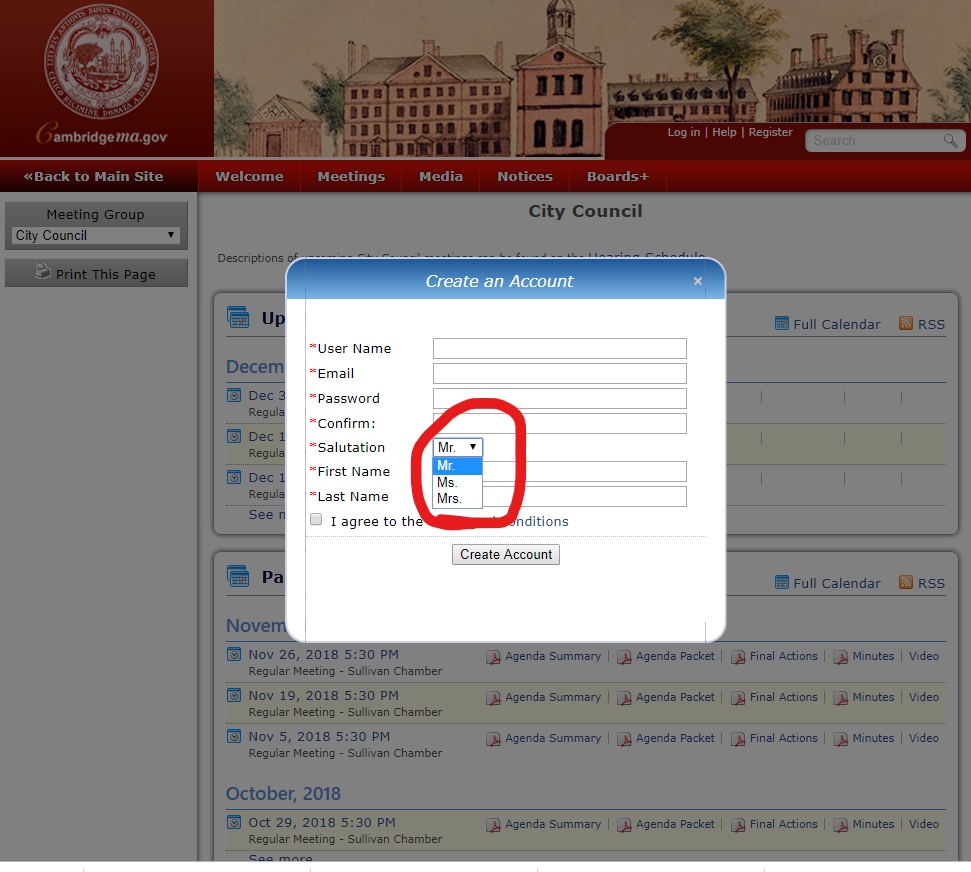
Bigots put trans rights on the ballot in 2018, collecting enough signatures to force a referendum on the bipartisan decision to protect trans folks under our state’s public accommodations law. I was proud to cosponsor a resolution that put the Council’s weight behind a YES vote to keep the trans community protected from discrimination. YES won overwhelmingly statewide, and earned more than 90% support in Cambridge. It was great to see the commonwealth unite in rejection of hate and in support of keeping discrimination illegal in places of public accommodation. Later in the year, I wrote a policy order co-sponsored by Councillors Mallon and Simmons, asking the City Manager to take a closer look at the city’s website and to make adjustments to ensure everyone feels comfortable using it. There still remains at least one signup form which forces the user to choose male or female without giving a third option for those who are trans or non-binary (see image), and that needs to change! In 2019, the Council will consider asking the state to allow gender neutral birth certificates, something that recently passed in New York City.
Condemning Crown Prince Mohammed bin Salman
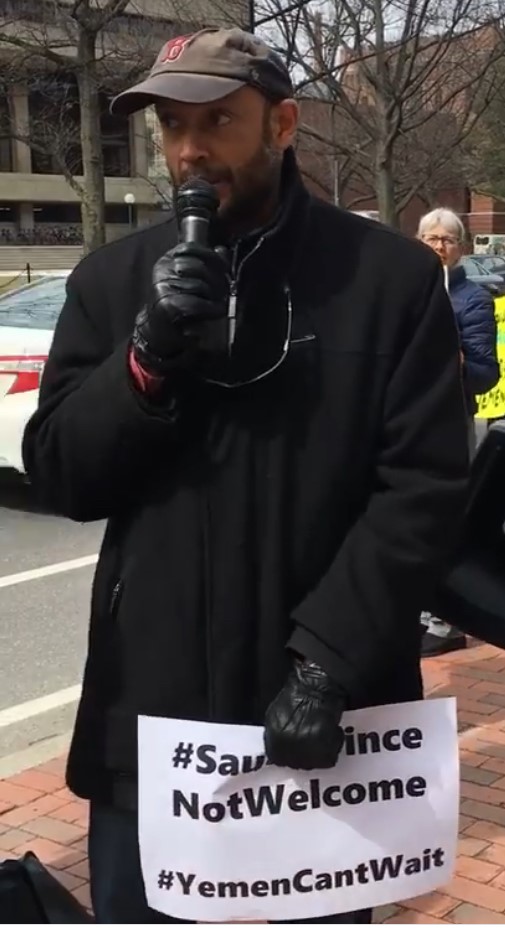
In April, I sponsored a resolution condemning the policies of the Saudi Arabian Crown Prince, and criticizing MIT and Harvard for their handling of his recent visit to Cambridge. bin Salman rose to power through incredibly undemocratic means, and is considered the architect of Saudi Arabia’s intervention in the Yemeni Civil War, one of the worst humanitarian crises on the planet. I was particularly disappointed in my alma mater for the unusual lack of dialogue that occurred around the visit. These institutions should not be nurturing ties with someone this evil. Even after the world learned bin Salman ordered the brutal killing of prominent journalist and dissident Jamal Khashoggi himself a few months later, MIT released a report recommending that the university continue to maintain ties.
Arts
Mass Evictions at the EMF Building

When notorious real estate developer John DiGiovanni evicted more than 200 artists from their workspace and community at the EMF building on Brookline Street, I submitted a policy order asking the city to buy the building outright so that the artists could continue honing their craft within city limits. More than 50 impacted artists showed up to speak at public comment, which was incredibly moving. As discussions advanced, it became clear that the conditions of the building were unsafe and the City Manager decided not to pursue buying the building. However, the magnitude of the loss was understood by everyone involved- if we don’t have workspace for artists, how can we expect them to play at our nightclubs, in our squares, at our events and in our cultural district? This important discussion led to the Mayor creating a task force led by Councillor Mallon, which has already put forward several important policy proposals. I am optimistic that the task force will help us do better in supporting our artists and the arts.
Eliminating Busking Fees
The Council was unanimous in its support of eliminating fees for street performers, in alignment with the policies of Somerville and Boston. At a committee hearing on the topic, my motion to strike all fees from the ordinance passed 6-0 and would eventually gain unanimous support from the full council. Though the administration was hesitant, my colleagues and I insisted that this was one small thing we could do for the artist community after a difficult year. You will still need a permit to perform on Cambridge streets in 2019, but it will not cost anything to obtain.
Direct Support for Artists in our Community

When it comes to the arts, I have made it a point to not just be an advocate from my seat in the Sullivan Chamber, but also to directly experience the ways artists are actively enriching our community whenever possible. I include announcements of upcoming shows and music releases in my monthly newsletters, I seek their perspective anytime related policy comes forward for a vote, and I attend performances whenever possible. Something I particularly look forward to are the performances put on by Bridge Repertory Theater at the Multicultural Arts Center in East Cambridge. Bridge Rep is quickly becoming a Cambridge institution thanks to the hard work of my good friend Olivia D’Ambrosio and many others, and I was thrilled to support an appropriation from the City Manager for $18,000 so they can continue to expand their community engagement initiatives. The upcoming production of Who is Eartha Mae? will run throughout the month of February and promises to be spectacular.
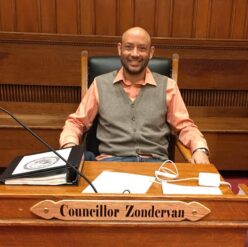

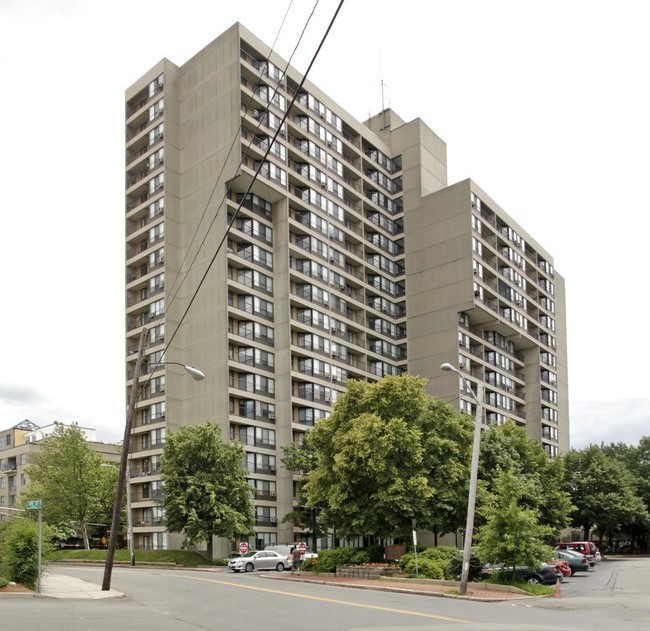


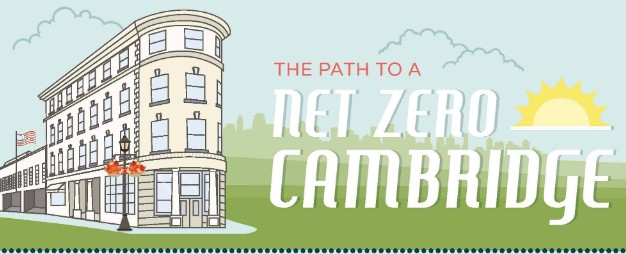




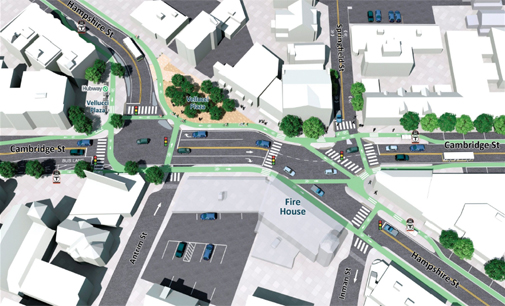
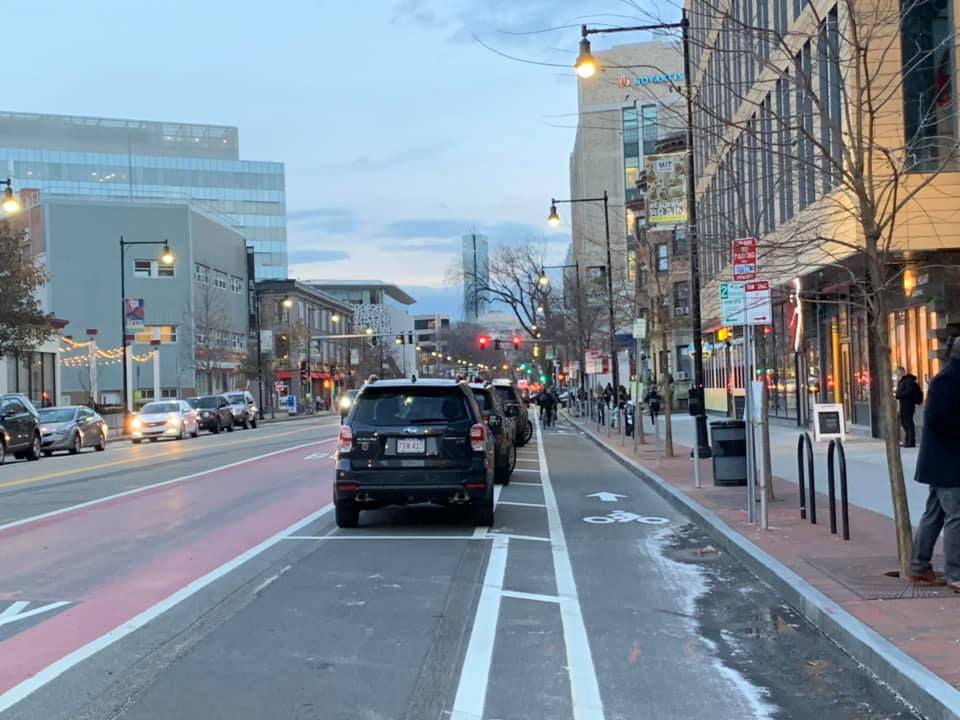
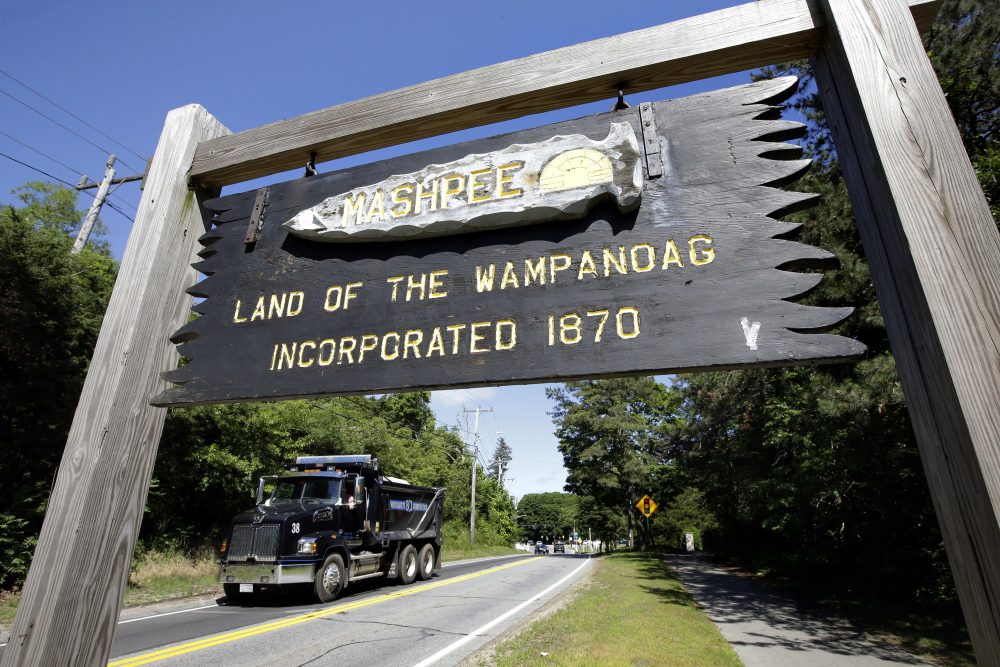
Thank you for representing us and leading with your values, Q! We appreciate your work.
GREAT work, Quinton! I appreciate the dedication you have to Climate Justice Housing, Trees, the Arts, and Social Justice! You have taken on strong leadership in these areas and I feel confidence in your ability to make change! You will have my vote next term!